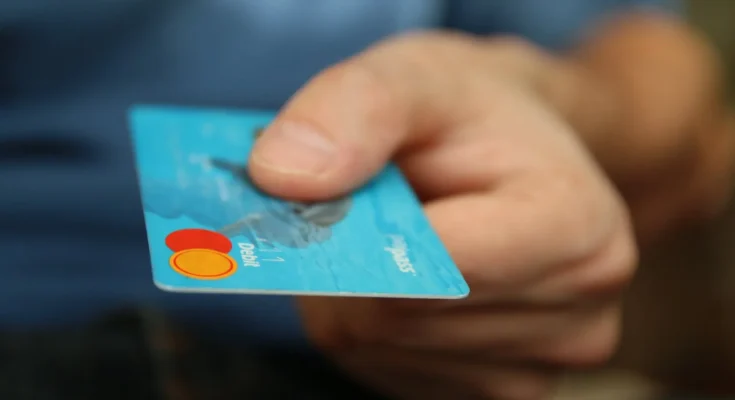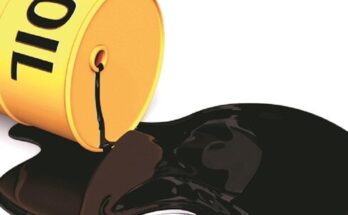Introduction
Welcome to a comprehensive guide on how to strategically manage your credit card bills to boost your credit score. In this article, we will delve into the best practices for timely payments, understanding the credit utilization ratio, and leveraging your credit card to enhance your creditworthiness. Whether you’re new to credit cards or looking to improve your credit standing, this guide will equip you with the knowledge to make informed decisions.
Table of Contents
- Understanding the Importance of Timely Credit Card Payments
- The Impact of Late Payments on Your Credit Score
- The Benefits of Paying Bills on Time
- The Ideal Time to Make Credit Card Payments
- Choosing the Best Payment Date
- Avoiding Last-Minute Payments
- The Significance of Credit Utilization Ratio
- What is Credit Utilization Ratio?
- Maintaining an Optimal Credit Utilization Ratio
- How Early Payments Affect Your Credit Score
- Early Payments and Their Effect on Credit Utilization
- Early Payments and Positive Payment History
- Setting Up Payment Reminders
- Utilizing Technology for Timely Payments
- Automatic Payments vs. Manual Payments
- The Impact of Minimum Payments on Credit Score
- Pros and Cons of Making Minimum Payments
- Strategies to Pay More than the Minimum
- Clearing Debt vs. Carrying a Balance
- The Myth of Carrying a Small Balance
- The Benefits of Debt Clearance
- How Different Types of Credit Cards Affect Payments
- Managing Multiple Credit Cards Efficiently
- The Role of Credit Card Interest Rates
- Monitoring Your Credit Score Progress
- Tracking Improvements Over Time
- Utilizing Credit Score Monitoring Tools
- Overcoming Challenges in Credit Card Payments
- Dealing with Unexpected Financial Difficulties
- Seeking Professional Advice
- The Connection Between Credit Score and Financial Goals
- Improving Credit Score for Better Loan Opportunities
- Preparing for Major Life Events with a Strong Credit Score
Understanding the Importance of Timely Credit Card Payments
The Impact of Late Payments on Your Credit Score
Your payment history is a significant factor that influences your credit score. Consistently making late payments on your credit card bills can have detrimental effects on your creditworthiness. Late payments can lead to negative marks on your credit report, which can stay there for several years. This lowers your credit score, making it harder to qualify for loans, mortgages, or even secure favorable interest rates.
The Benefits of Paying Bills on Time
On the other hand, making timely credit card payments has numerous benefits. It showcases your financial responsibility and demonstrates to lenders that you are a reliable borrower. This, in turn, helps increase your credit score over time, opening doors to better financial opportunities.
The Ideal Time to Make Credit Card Payments
Choosing the Best Payment Date
Selecting the right payment date is crucial in managing your credit card bills efficiently. Align your payment due date with your salary or income schedule to ensure you have sufficient funds to cover the payment on time. This strategy helps you avoid cash flow issues that could lead to late payments.
Avoiding Last-Minute Payments
While it’s essential to choose a suitable payment date, it’s equally crucial to avoid making last-minute payments. Unexpected delays or technical issues could hinder your payment, leading to late fees and negatively affecting your credit score. Aim to pay your credit card bills a few days before the due date to safeguard against potential delays.
The Significance of Credit Utilization Ratio
What is Credit Utilization Ratio?
Your credit utilization ratio represents the percentage of your credit limit that you are currently using. It is a crucial factor in calculating your credit score and should be managed effectively to improve your creditworthiness. A high credit utilization ratio indicates higher credit risk, potentially lowering your credit score.
Maintaining an Optimal Credit Utilization Ratio
To maximize your credit score, aim to maintain a credit utilization ratio of below 30%. For example, if your credit card limit is $10,000, try to keep your outstanding balance below $3,000. By doing so, you demonstrate that you are responsible with your credit and can handle your debts effectively.
How Early Payments Affect Your Credit Score
Early Payments and Their Effect on Credit Utilization
Making early payments can positively impact your credit utilization ratio. When you pay your credit card bills before the billing cycle ends, it reduces the reported outstanding balance. This, in turn, lowers your credit utilization ratio, signalling responsible credit management to credit bureaus.
Early Payments and Positive Payment History
Consistently making early payments contributes to a positive payment history. Payment history is a critical component of your credit score, and demonstrating a pattern of early payments can significantly boost your creditworthiness over time.
Setting Up Payment Reminders
Utilizing Technology for Timely Payments
In this fast-paced world, it’s easy to forget payment due dates. To avoid late payments, leverage technology to set up payment reminders. You can use mobile apps or calendar alerts to notify you before the due date, ensuring you never miss a payment.
Automatic Payments vs. Manual Payments
When it comes to making credit card payments, you have the option to set up automatic payments or make manual payments each month. Automatic payments can be convenient, ensuring you never miss a due date. However, manual payments allow you more control over your finances and can be helpful if you have varying income streams.
The Impact of Minimum Payments on Credit Score
Pros and Cons of Making Minimum Payments
Making minimum payments on your credit card bills can provide short-term relief, especially during financially challenging times. However, it’s essential to understand that paying only the minimum amount may not make significant progress in reducing your debt. Additionally, it can lead to higher interest charges and extend the time it takes to clear your debt.
Strategies to Pay More than the Minimum
To accelerate your debt repayment and improve your credit score, consider paying more than the minimum required each month. By doing so, you reduce your credit utilization ratio faster and demonstrate to creditors that you are proactive in managing your financial obligations.
Clearing Debt vs. Carrying a Balance
The Myth of Carrying a Small Balance
Contrary to popular belief, carrying a small balance on your credit card does not necessarily help your credit score. The key is to manage your credit utilization ratio effectively by keeping your outstanding balance low relative to your credit limit.
The Benefits of Debt Clearance
Clearing your credit card debt entirely is a proactive approach to improving your credit score. It not only improves your credit utilization ratio but also relieves you from the burden of high-interest charges. Focus on paying off your credit card balances to pave the way for a stronger credit score.
How Different Types of Credit Cards Affect Payments
Managing Multiple Credit Cards Efficiently
If you have multiple credit cards, it’s essential to manage them effectively to maintain a good credit score. Keep track of each card’s due dates, balances, and interest rates to make timely payments and avoid unnecessary fees.
The Role of Credit Card Interest Rates
Credit card interest rates can significantly impact your payments. Higher interest rates mean more of your payment goes towards interest rather than reducing your outstanding balance. If possible, consider transferring balances to a card with a lower interest rate or negotiate with your credit card issuer for better terms.
Monitoring Your Credit Score Progress
Tracking Improvements Over Time
As you implement these strategies, monitor your credit score regularly to track your progress. Many websites and apps offer free credit score tracking services, allowing you to stay informed about your creditworthiness.
Utilizing Credit Score Monitoring Tools
In addition to credit score tracking, consider using credit score monitoring tools. These tools can provide insights into factors affecting your credit score and offer personalized recommendations to further improve your credit standing.
Overcoming Challenges in Credit Card Payments
Dealing with Unexpected Financial Difficulties
Life is unpredictable, and financial challenges can arise unexpectedly. If you find yourself facing difficulties in making credit card payments, contact your credit card issuer promptly. They may offer assistance programs or alternative payment arrangements during challenging times.
Seeking Professional Advice
If managing your credit card bills becomes overwhelming, seeking professional financial advice can be beneficial. Certified financial advisors can help you create a personalized plan to improve your credit score and achieve your financial goals.
The Connection Between Credit Score and Financial Goals
Improving Credit Score for Better Loan Opportunities
A higher credit score opens doors to better loan opportunities with lower interest rates and more favorable terms. By improving your credit score, you increase your chances of securing loans for major purchases such as a home or car.
Preparing for Major Life Events with a Strong Credit Score
A strong credit score is essential when preparing for significant life events such as buying a home, starting a business, or financing education. By strategically managing your credit card bills, you build a solid foundation for achieving your long-term financial objectives.
Conclusion
Strategically managing your credit card bills is a powerful tool in increasing your credit score. Timely payments, responsible credit utilization, and a proactive approach to debt repayment are key factors that contribute to a strong credit profile. By incorporating these practices into your financial routine, you can pave the way for a brighter financial future.
Frequently Asked Questions
- How long does it take for timely payments to improve my credit score?
Timely payments can start positively affecting your credit score within a few months. However, consistent timely payments over an extended period yield the most significant improvements.
- What is the ideal credit utilization ratio for a high credit score?
Aim to maintain a credit utilization ratio of below 30% to boost your credit score.
- Is automatic credit card bill payment safe?
Yes, automatic credit card bill payments are generally safe, provided you have sufficient funds in your account. However, it’s essential to regularly monitor your bank statements for any discrepancies.
- Can I negotiate my credit card interest rates?
Yes, you can negotiate with your credit card issuer for better interest rates, especially if you have a good payment history.
- Can I improve my credit score quickly by clearing all debts at once?
While clearing debts is beneficial for your credit score, significant improvements may take time. Focus on consistent financial practices to see substantial long-term results.
-
33-year-old mortician doesn’t fear death and is ‘wildly happy’ earning $87,000 a year: I haven’t ‘gone home sad a single day’
The first time Victor M. Sweeney observed an embalming, it was for an 18-year-old woman who had died in a car crash just before her high school graduation. At the …
-
All sides claim victory in Georgia election as exit polls give different results
Supporters of the Georgian Dream party celebrate at the party’s headquarters after the announcement of exit poll results in parliamentary elections, in Tbilisi, Georgia October 26, 2024.. Irakli Gedenidze | …
-
Biden says Elon Musk was an ‘illegal worker’ when he began U.S. career
Joe Biden, left, and Elon Musk. Evelyn Hockstein | Reuters; Andrew Harrer | Bloomberg | Getty Images. President Joe Biden called out Tesla and SpaceX CEO Elon Musk, now a …
-
39-year-old makes about $18,000 a month in passive income without a college degree: ‘I work only 4 hours a day’
After dropping out of college in 2007, Amy Landino started a side hustle creating videos and doing social media. Ultimately she was able to quit her day job.
-
39-year-old makes about $18,000 a month in passive income without a college degree: ‘I work only 4 hours a day’
After dropping out of college in 2007, Amy Landino started a side hustle creating videos and doing social media. Ultimately she was able to quit her day job.
-
The Washington Post is in deep turmoil as Bezos remains silent on non-endorsement
New York CNN —. One day after The Washington Post announced it would not endorse a presidential candidate in this year’s election or in the future, its billionaire owner remains …








